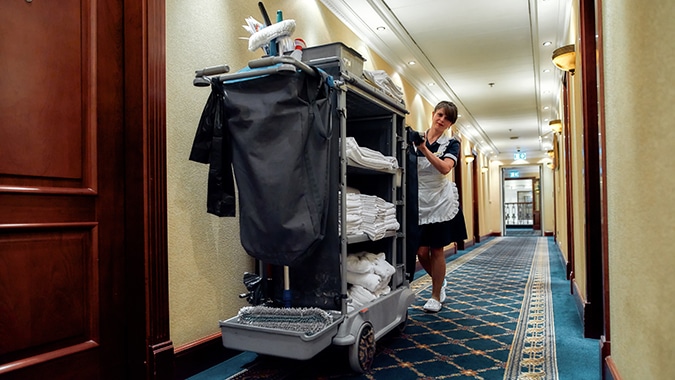If you’re a business owner wondering how the law that legalized recreational marijuana three months ago affects your drug-free workplace policy, HR experts have two words for you: It doesn’t.
While employers cannot discipline, fire or refuse to hire people who use marijuana on their own time, the law does not obligate a business to tolerate employees who are under the influence at work, Judy Sailer, HR education manager for Primepoint HRMS & Payroll said at a recent NJBIA online event.
“The biggest employment provision that you need to know is that nothing forces you to allow someone to utilize marijuana,” Sailer said. “So that means if your employee comes into your building, and they maybe they smoke cigarettes and they go out for a cigarette break, they’re not allowed to go out for a marijuana break,” Sailer said.
If employees consume alcohol or drugs on their own time but appear to be still under the influence when they report to work, the employer has “reasonable cause” under the law to drug test them, Sailer said. Employers may even conduct random drug testing of employees, regardless of whether they appear impaired, if that is already part of the business’ written policies and procedures.
“It has to be written down,” Sailer said. “I’ve got several clients right now who are working through some things, not just cannabis, and they’re finding that they’ve had procedures that they have been doing for time and all eternity but there’s no written statement that says this is exactly how we do every step of this. It’s becoming very, very important, especially when it comes to folks who are using recreational marijuana that are looking for any loophole that they can get.”
Sailer said employers face a “slippery slope,” when a drug test comes back positive for cannabis because marijuana remains in the system much longer than alcohol. Marijuana may be present weeks after the person last used the drug, which is why a physical evaluation is also needed.
The state law that legalized recreational marijuana required the New Jersey Cannabis Regulatory Commission to establish training and certification standards for “workplace impairment recognition experts” (WIREs), but the CRC has yet to do so, leaving employers on their own for now.
“Right now … there’s no WIRE required to check,” Sailer said. “There’s no certification. There’s no training.”
Sailer said one resource that she directs employers to is the National Safety Council’s Impairment Recognition and Response Training for Supervisors, which provides training that assists supervisors in recognizing signs of impairment as well as the response steps that should be followed.
“They’ve developed this training based on what they have found relating to laws and regulations of all the states,” Sailer said. “I’m not trying to give them business, but they’re the only ones I have found that really kind of laid out for us what our supervisors should be getting trained with.”
Sailer said attorneys she has checked with say employers should be aware that some signs of impairment that employers may be on the lookout for could have other causes unrelated to cannabis. For example, red eyes could be a sign of marijuana impairment, but it could also be caused by allergies to pollen. Slurred speech is another sign of impairment, but it could also signal a diabetic issue.
“Our guidance as laypeople, isn’t going to do 100% for us,” Sailer said. “So, we’re waiting for guidance. And it’s coming still, according to the state.”
NJBIA has pressed the New Jersey Cannabis Regulatory Commission to issue its guidance on WIREs to give employers clarity on how to proceed after positive marijuana test results. At its July 1 meeting, the NRC promised to issue regulations on WIREs “very imminently.”

